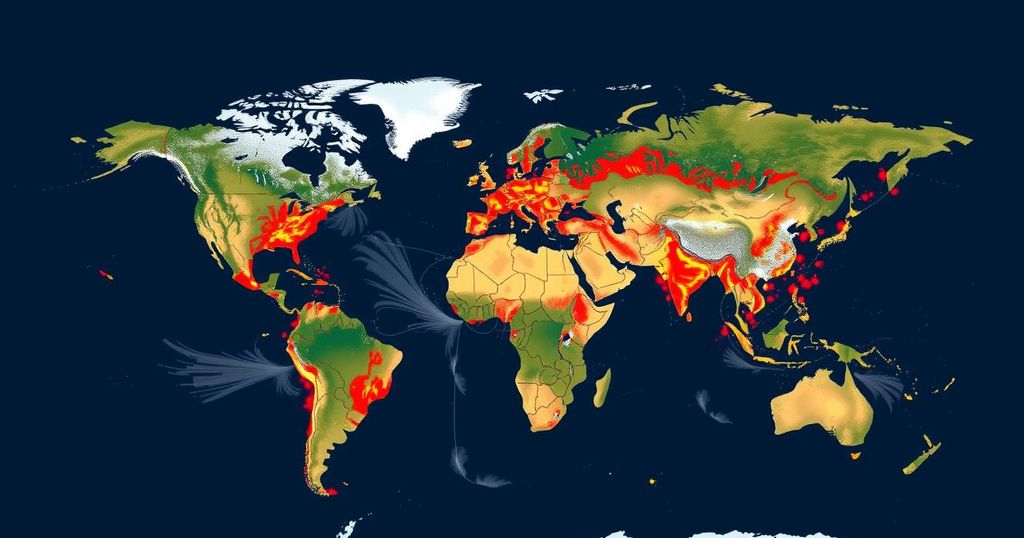How Climate Change Intensifies Extreme Weather: Insights from Carbon Brief’s Mapping Study

A recent update from Carbon Brief details over 600 studies on extreme weather events influenced by climate change, revealing that approximately 74% were exacerbated due to human activities. The report highlights significant trends, innovative rapid assessment methods, and calls for increased focus on underrepresented regions in climate research.
In 2004, researchers pioneered the field of extreme event attribution by quantifying human contributions to severe weather, with significant findings from the 2003 European heatwave. Such studies now assess climate change’s role in various phenomena from wildfires to intense rainfall, confirming that approximately 74% of recent events were exacerbated by human-induced climate change. Carbon Brief’s updated map now encapsulates over 600 studies across 744 extreme weather occurrences. While climate change has intensified numerous weather events, about 9% of occurrences displayed diminished likelihood or severity due to climate influences. This comprehensive research has enabled a deeper understanding of how climate dynamics alter extreme weather patterns regionally and globally, signifying an urgent need for enhanced data collection in underrepresented areas. Additionally, innovative methods, including rapid attribution studies, have emerged, allowing for quick assessments of climate impacts following extreme incidents, exemplified by the recent Kerala landslide in 2024. Notably, an imbalance in research focus mostly favors the global north, highlighting the call for more attention towards extremes experienced in developing regions. The mapping project, fostering accessibility to these findings, plays a critical role in informing policy and adaptation strategies as climate threats increasingly manifest across the globe. By understanding the relationship between climate change and extreme weather events, communities can better prepare for and mitigate the impacts of these occurrences.
The study of extreme event attribution, initiated over two decades ago, allows scientists to ascertain how much human-caused climate change has influenced specific weather phenomena. This discipline has rapidly expanded, with numerous institutions employing advanced climate modeling techniques to evaluate the frequency, intensity, and consequences of extreme weather events, revealing a significant correlation between anthropogenic activities and increasing weather extremes. The Carbon Brief map serves as a vital tool for tracking these contributions across a range of extreme events worldwide, identifying specific instances where climate change has played a deciding role.
In conclusion, the compilation of studies concerning the impact of climate change on extreme weather underscores a critical trend: nearly three-quarters of analyzed events have worsened due to human influences. Reflecting on the growing body of research, it is imperative that future efforts address the geographical and methodological disparities present within attribution science. Consequently, expanding research in developing regions and adopting rapid assessment strategies are essential for crafting effective responses to climate-related challenges.
Original Source: www.carbonbrief.org






